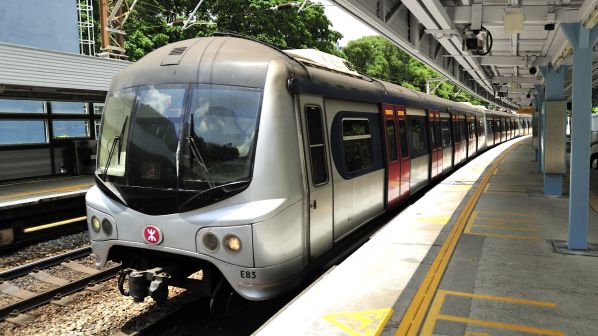HONG Kong-based operator MTR has announced a 21.9% drop in revenue in its latest annual results from $HK 54.5bn ($US 7bn) in 2019 to $HK 42.5bn in 2020. This resulted in a $HK 4.8bn loss in 2020, down from a $HK 11.93bn profit in 2019.
Total revenue was split by:
- Hong Kong transport operations - $HK 11.89bn, down from $HK 19.93bn in 2019
- Hong Kong station commercial businesses - $HK 3.27bn, down from $HK 6.8bn
- Hong Kong property rental and management businesses - $HK 5.05bn, down from $HK 5.13bn
- China and international rail, property rental and management subsidiaries - $HK 21.42bn, up from $HK 21.08bn, and
- other businesses - $HK 894m, down from $HK 1.545bn.
MTR says the ongoing Covid-19 pandemic significantly impacted financial performance. Passenger numbers fell by 31.5% year-on-year while the company’s shopping malls, duty free shops, station kiosks and advertising businesses were all adversely affected.
Despite these challenges, MTR was able to offer fare rebates to passengers and rental concessions to tenants to support the communities in which it operates. MTR also continued to provide a full service with 99.9% punctuality.
The Tuen Ma Line Phase 1 opened in February 2020 adding two new stations to the Hong Kong metro network. The 6.8km line is effectively an extension of the Ma On Shan line, with services running from Tai Wai through Hin Keng and Diamond Hill to Kai Tak. Phase 2, which will complete the 56km Tuen Ma Line, is expected to open in the third quarter of 2021.
A new signalling system on the East Rail Line (EAL), another part of the Shatin to Central Link (SCL) project, was commissioned on February 6 2021 after being completed in 2020, allowing the start of operation of nine-car trains on the network. The system was due to be commissioned on September 12 2020, but was delayed the day before due to an error discovered in May 2020.
The Hong Kong government also approved an $HK 10.8bn increase in funding for the SCL. The project was originally estimated to cost $HK 70.8bn, but this was revised in 2020 to $HK 83bn. The original cost included a project management fee for MTR of $HK 7.89bn, with the revised project cost including an additional fee of $HK 1.37bn due to events outside of MTR’s control prolonging completion of the project. While the government approved the additional project funding, it didn’t include the additional project management fee requested by MTR. MTR says it will continue to undertake its obligations for the project and meet the additional costs, but will continue to look to the government to cover this cost.
The government approved the start of detailed planning and design of the Tung Chung Line Extension, Tuen Mun South Extension, Kwu Tung Station and Northern Link, along with technical studies on the development of Siu Ho Wan Depot site.
MTR launched operation on four new Chinese projects last year, including two in Hangzhou, and one in each of Shenzhen and Beijing. The operator also won two new international concessions: the Shenzhen Metro Line 13 public private partnership (PPP) project in China, and an operation and maintenance contract for Mälartåg regional services in Sweden.
Outlook
MTR has launched a new corporate strategy, “Transforming the Future,” which it says will support its sustainable growth and deliver shareholder and stakeholder value by emphasising innovation and environmental, social and governance principles.
Looking ahead, the company says the Covid-19 situation remains uncertain and its adverse impact on recurrent businesses may continue well into 2021.

